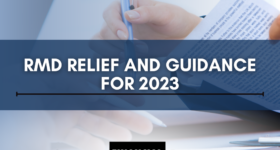For employers who have taken on the responsibility of offering sponsored retirement plans such as 401(k), profit sharing, or defined benefit plans, the task is not as simple as just presenting the plan. They need to gather extensive employee census information yearly, and one term that frequently comes up in these discussions is “Highly Compensated Employee” or HCE. But what does being an HCE mean, and why is it important to understand this classification?
The Complex Waters of Aging Parents’ Finances
As professionals, managing our own finances can be a challenge. However, one area that we often overlook, yet is vitally important, is understanding and navigating our aging parents’ finances.
Life Insurance for the Self-Employed
If you’re like most people, you bought life insurance to provide for your loved ones in the event of your death. But because you’re self-employed, you may have an even greater need for life insurance: You’ll want to protect your family after you die, as well as protect the financial needs of your business.
401(k) Options for Small Business Owners
Regardless of the business’s size, small business owners have 401(k) retirement savings plan options that may be suitable for their situation. Business owners must plan for retirement by utilizing retirement savings vehicles that may provide them with common IRS tax savings incentives when funding specific 401(k) options.
RMD Relief and Guidance for 2023
In early 2022, the IRS issued proposed regulations regarding required minimum distributions (RMDs) to reflect changes made by the Setting Every Community Up for Retirement Enhancement (SECURE) Act of 2019. The IRS has held off on releasing final regulations so that it can address additional changes to RMDs made by the SECURE 2.0 Act of 2022, which was passed in late 2022. In the meantime, the IRS has issued interim RMD relief and guidance for 2023. Final RMD regulations, when issued, will not apply before 2024.
- « Previous Page
- 1
- …
- 5
- 6
- 7
- 8
- 9
- …
- 52
- Next Page »




